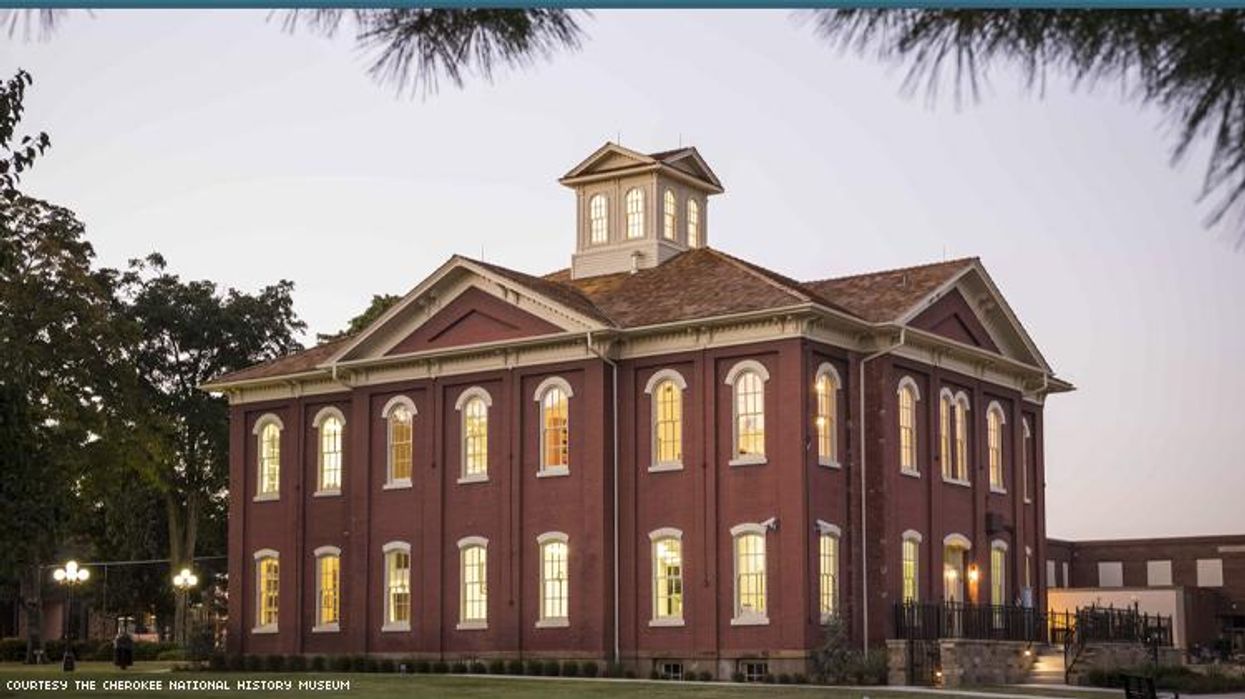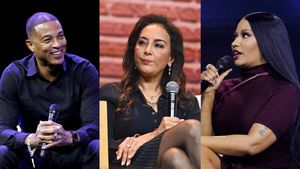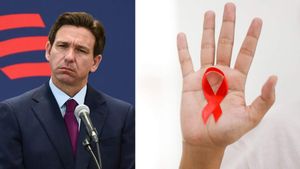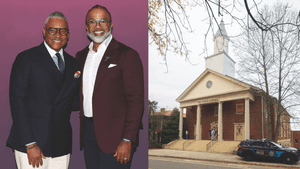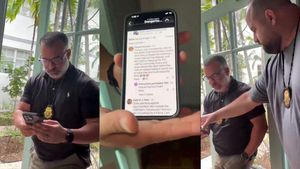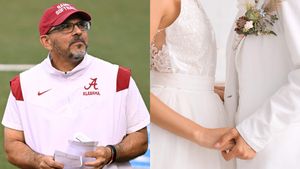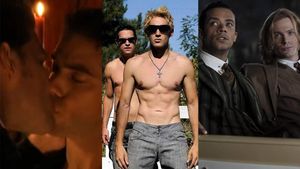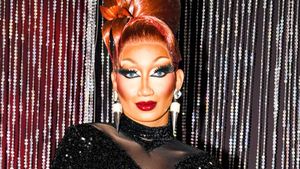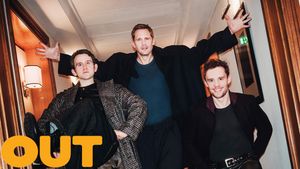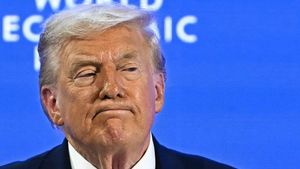(CNN) -- From life before European contact to the Trail of Tears to the modern-day tribal government, the Cherokee National History Museum tells the long, rich story of the Cherokee people.
But one of the darkest chapters of Cherokee history remained absent from its walls, until recently.
The Cherokee National History Museum in Tahlequah, Oklahoma, opened a new exhibit last month about the Cherokee Freedmen, or the Black people once enslaved by the tribe. The exhibit, titled "We Are Cherokee: Cherokee Freedmen and the Right to Citizenship," details the decades-long fight by Freedmen and their descendants to be recognized as citizens of the tribe, illuminating it through art, family photos, enrollment applications and other records.
The display, which greets museum visitors as they first walk in, is one of several recent steps taken by the Cherokee Nation to reckon with its history of slavery.
"This museum exhibit is really the latest in our ongoing effort to not just adhere to legal requirements of equality, but to really embrace the spirit of equality and to explore this part of Cherokee history that, frankly, has been diminished and not talked about for generations," Cherokee Nation Principal Chief Chuck Hoskin Jr. told CNN.
Cherokee Freedmen were long denied their rights
The history of the Cherokee Freedmen spans from the late 18th century to present day.
Though the Cherokee engaged in captivity before Europeans arrived in the Americas, White settlers introduced them to the practice of racialized chattel slavery. As the federal government sought to "civilize" Indigenous people, the Cherokee and other tribes in the Southeast adopted norms and practices of White settlers, including enslaving Black people. When the US government forced the Cherokee to leave their homelands in the Southeast and relocate west of the Mississippi River, enslaved Black people came with them.
The Cherokee legislature passed an act freeing enslaved people in 1863. In 1866, the Cherokee Nation signed a treaty with the US government abolishing slavery and granting full citizenship rights to the Freedmen. But in practice, Freedmen were often excluded from the tribe. In 1983, the Cherokee Nation revoked Freedmen citizenship, setting off decades of legal battles. Then in 2007, the tribe amended its constitution to restrict citizenship to those with "Indian blood," stripping thousands of Freedmen of their rights until the change was ultimately reversed last year.
"I want my kids and grandkids to grow up in a world in which they are absolutely mystified that for a century and a half, Freedmen descendants were denied their rights, and that they are proud of the fact that it long last we did it," Hoskin said. "I also think we're a stronger nation for having recognized Freedman rights and the rights of Freedman descendants."
More than 11,800 descendants of Freedmen are now enrolled as citizens of the Cherokee Nation, according to the tribe.
There have also been strides within the tribal government. Last year, longtime Freedmen rights advocate Marilyn Vann became the first person of Freedmen descent to hold a government position with the Cherokee Nation. And recently, Hoskin appointed a new adviser to his administration on Freedmen community engagement.
Freedmen are finally being recognized as Cherokee
On the four walls that envelop the exhibition are the names of more than 5,000 Cherokee Freedmen.
Those names are taken from the Dawes Rolls, a list compiled by federal officials in the late 1800s of individuals who were eligible for tribal citizenship. The records list whether a person's basis for membership is by blood, intermarriage, adoption or status as formerly enslaved, and have since been used to determine Cherokee ancestry. But they have also been used to exclude the descendants of the enslaved -- though Black and Indigenous people intermarried, those of mixed heritage were enrolled only as Freedmen without acknowledgment of their "blood" connection to the tribe.
"For a long time, those names and those voices have been left out," said Travis Owens, vice president of cultural tourism for Cherokee Nation Businesses. "Now, they are not only present but very prominent in the building."
The ancestors of Willadine Johnson are among the names on the walls.
Johnson's maternal and paternal great-great-grandparents walked the Trail of Tears with their Cherokee enslavers. She and some of her family members received their Cherokee citizenship cards in 2006, but over the years, she said they've had to fight to be recognized. On September 3, her family traveled to Tahlequah from Kansas City, Missouri, for a special reception commemorating the exhibit.
The Cherokee Freedmen exhibit features a number of archival materials collected by descendants, among them a certificate signed by former President Barack Obama honoring Johnson's great-great-grandfather Rufus Vann, who served in the 1st Kansas Colored Infantry Regiment. A photo postcard of Johnson's great-grandmother Phyllis Vann Bean is also on display. Since she found out their family history would be a part of the exhibit, Johnson said she and her family have shed tears of joy.
"It's just really something to finally be recognized for our Cherokee ancestry," she said in an interview last week. "We are Cherokee."
For others, however, the battle continues. The descendants of Black people enslaved by the Muscogee, Choctaw, Chickasaw, and Seminole tribes are still fighting to reclaim full citizenship.
While the Cherokee Nation has been a leader in granting Freedmen rights, there is still work to be done to achieve full equality, Hoskin said. This exhibit, he hopes, will be a critical step.
"What's most healthy for Cherokee society is to confront these difficult chapters, to look at the facts head on and to reconcile them with what is going on today in our lives," he said. "I think it starts with gaining an understanding of the basic history."
The-CNN-Wire
™ & © 2022 Cable News Network, Inc., a Warner Bros. Discovery Company. All rights reserved.
